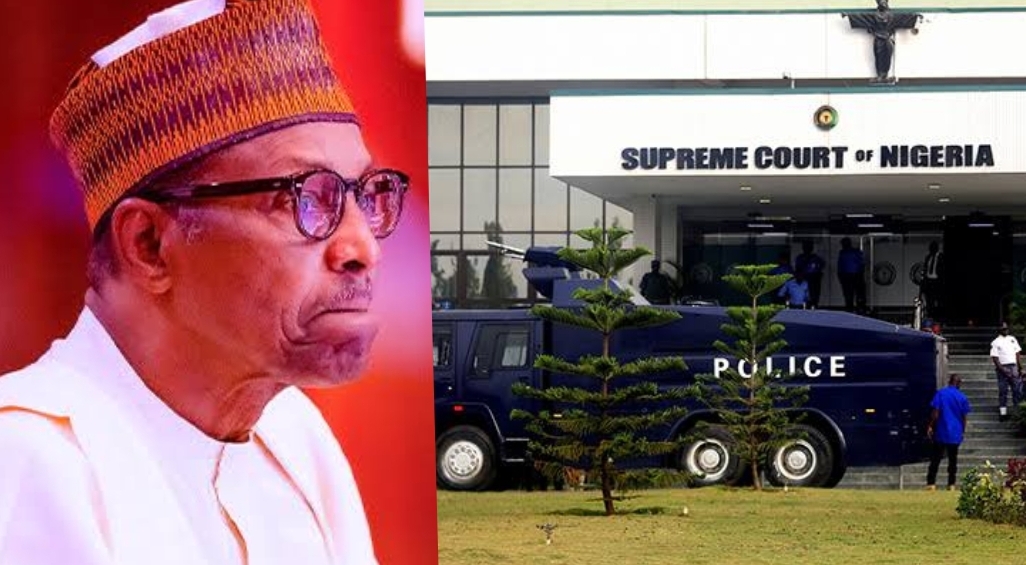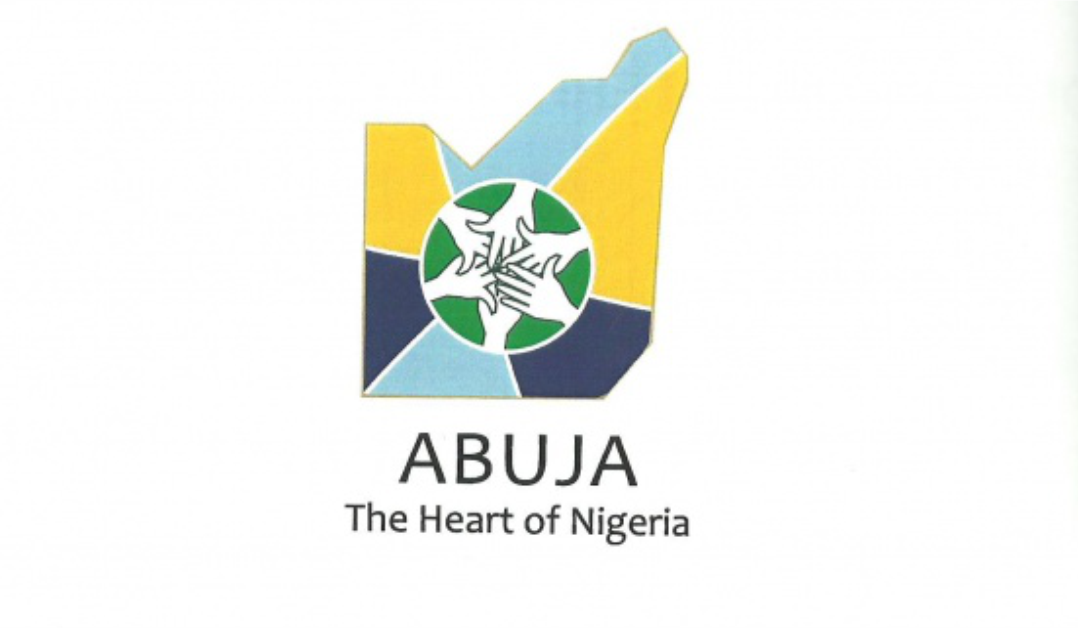Buhari, who captured Nigeria’s Supreme Court, praises independent UK judiciary for busting $11 billion P&ID scam

Former President Muhammadu Buhari, whose tenure was marked by a contentious relationship with the nation’s judiciary, has commended the United Kingdom’s judiciary for its pivotal role in unravelling the $11 billion Process and Industrial Development (P&ID) scam. The case, riddled with international ramifications, was recently resolved in Nigeria’s favour.
Mr Buhari, on Sunday, acknowledged on his social media handles (Facebook and X) that Nigeria greatly benefited from the impartiality and independence of the UK’s judiciary per the ruling of Justice Robin Knowles, who stated that Nigeria had “been a victim of a monstrous fraud.”
The former president stated that Mr Knowles’ ruling was justice served to the Nigerian people who would have incurred $15 billion in debt over schemed scam decisions that they did not make.
“We won, and all decent people can sleep easier at night,” he said. “Had Nigeria lost, it would have required schools not to be built, nurses not to be trained, and roads not to be repaired, on the epic scale, to pay a handful of contractors and their allies – for a project that never broke ground.”
Mr Buhari’s remarks acknowledge the importance of an impartial and independent judicial system in safeguarding national interests and image based on the rule of law and respect for the judiciary, which experts observed was critically absent during his eight-year administration.
The understanding that the case proves how an independent judiciary, apart from serving the local citizenry, can also be relied on to arbitrate international disputes of diplomatic consequences stands in marked contrast to the regrettable history of Mr Buhari’s extensively documented contempt for Nigeria’s judiciary.
During Mr Buhari’s administration, 2015 to 2023, the independence and respect of the judiciary were significantly eroded; many commentators allege that the integrity and structural efficiency of the judiciary were politically compromised and that the country’s democratic standing was rightfully questioned.
By the end of the retired general’s first term in 2019, human rights lawyer Femi Falana said that he had compiled no less than 32 court orders flagrantly disobeyed by the president. By the end of the same year, Amnesty International released a scathing report affirming that the figure of court orders flouted by the regime had now surpassed 40.
Legal adviser to the rights organisation, Kolawole Olaniyan, said, “The disdainful arrogance for the courts and our constitutional jurisprudence,” which characterised the Buhari regime, “was not even normalised during the periods of military dictatorship in Nigeria.”
In 2022, the Socio-Economic Rights and Accountability Project (SERAP) accused Mr Buhari of having “ignored Nigerian judges” 40 times. Several cases that make up this unprecedented abuse of power and disrespect of the judiciary held significant implications for the protection of human rights and the preservation of democratic values.
Mr Buhari’s legacy of ruthless grip on total power outside constitutional provisions was represented in the economic mismanagement of the country and the political sphere. It propped a climate of fear, subjugation, and complete disregard for human rights, and towards its end, concentrated much effort at disarming opposition.
The economic dimension was evident when Mr Buhari ignored a 2018 judgment by Justice G.O. Kolawole of the Federal High Court, which ordered his administration to set limits for the consolidated debts of federal, state, and local governments.
This ruling complied with section 42(1) of the Fiscal Responsibility Act, which the administration had previously disregarded. None of the respondents of the suit, which included Mr Buhari, the Senate, House of Representatives, Minister of Justice, and Minister of Finance, complied with the pronouncements of the suit. The ruling was also not appealed.
The former president also ignored a court injunction asking his administration to halt the implementation of the currency redesign on grounds that the policy plunged the nation into economic hardship due to its poor conceptualisation. His critics also faulted the timing and political implications of the implementation. But Mr Buhari refused to yield to the court directive, neither did he acknowledge public opinion.
As the contempt for the judiciary manifested in economic ineptitude, so did permeate the political and democratic fabric of the nation. Security agencies were convenient tools of political witchhunt – many times in clear violation of fundamental human rights. Court orders to free political prisoners, whether on bail as in the case of RevolutionNow campaigner Omoyele Sowore or complete dismissal of the charges in the case of Ibrahim Elzakyzaky and his wife, were summarily dismissed. Mr Buhari authoritatively wielded his control over state institutions, relying on his near unquestionable power as the commander-in-chief of the armed forces.
Mr Buhari’s rulership by power of arms could be said to have exposed the inherent contradiction that resides in Nigeria’s contemporary democracy, one in which state regulatory and security institutions that are constitutionally obligated to enforce court pronouncements are under the total control of the president who chooses the extent of regard and compliance towards the pronouncement. In the case of Mr Buhari, the choices were damning to Nigeria’s struggling democracy.
This lacuna was effectively exploited when Mr Buhari brazenly removed former Chief Justice of the Supreme Court, Walter Onnoghen, in a clear outstepping of his constitutional powers and violation of the laid down process, which included the approval of two-thirds of the Senate. Several allegations against the jurist were not proven, but the public desecration of his office would later prompt his resignation.
It is unarguable that as the country continues to remain under the grip of the ruling All Progressives Congress (APC), the glory days of the judiciary might remain faint relics of a distant past.
The institution has consistently deteriorated from financial inducement and corruption to unlawful removal, threats, and harassment of judicial officers, and most recently to a contemptuous and condescending indifference. The cycle of this incredible polarisation of the country’s justice system has reached a stage where a radical reform must be initiated, or it could effectively end the country’s democracy.
This sentiment is shared by analysts who have closely observed recent court pronouncements, especially in light of the rulings on the dispute of the 2023 general elections.
Recently retired justice of the Supreme Court Musa Dattijo articulated these fears in his last weekend’s valedictory speech when he admitted first that public perception of the apex court by the citizenry is overwhelmingly negative.
Mr Dattijo further said the place of merit has been lost in the judiciary. Judges who, according to Mr Dattijo, are appointed on political and sectional interest would tilt towards the interest of their benefactors rather than a general justice, putting the country in a precarious position.
We have recently deactivated our website's comment provider in favour of other channels of distribution and commentary. We encourage you to join the conversation on our stories via our Facebook, Twitter and other social media pages.
More from Peoples Gazette

Politics
Katsina youths pledge to deliver over 2 million votes to Atiku
“Katsina State is Atiku’s political base because it is his second home.”

Economy
Overcrowding of correctional centres fuelling jailbreaks, says NGO
Ms Agomoh said the number of awaiting trial persons far exceeds the number of convicted inmates.

NationWide
Nurturing local talents to handle complexities of digital economy vital: NCC
Mr Maida said that the 6G revolution would transform industries.

Abuja
Abuja council pledges facility provision in FCT informal markets, targets revenue collection
Mr Obuah said that informal markets were critical to the development of every city or community.

Heading 4
Agege LG gives traders, beggars, others five-day ultimatum to vacate railway tracks
“It has come to our notice that hoodlums are using the avenue to attack and rob passers-by of their personal belongings.’’

Anti-Corruption
EFCC resumes clampdown on unlicensed BDC operators as naira weakens against dollar
The EFCC said the suspects would soon be arraigned in court upon conclusion of investigations.

Abuja
Minister lauds World Bank’s $2 million fund to tackle environmental degradation in FCT
“The project is here to help communities to adapt to the shock that will come from climate change.’’








